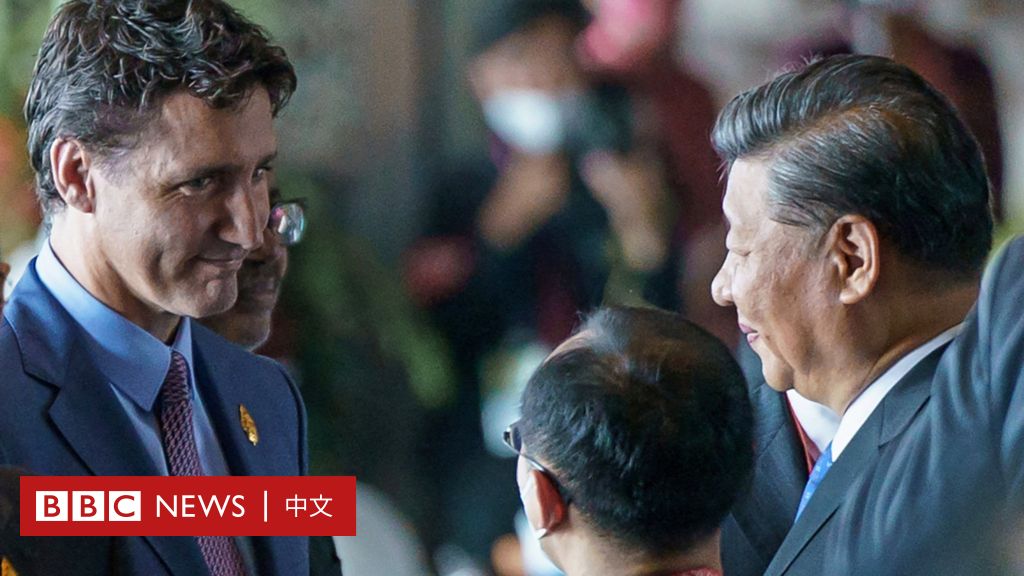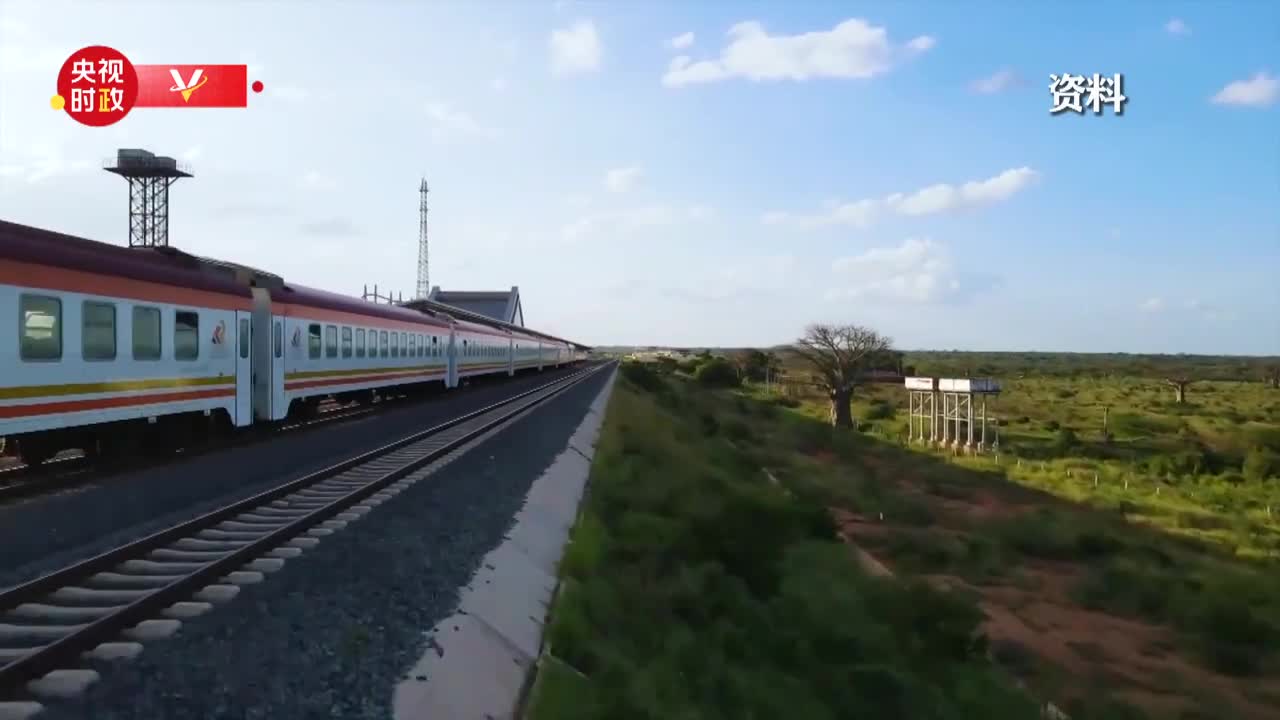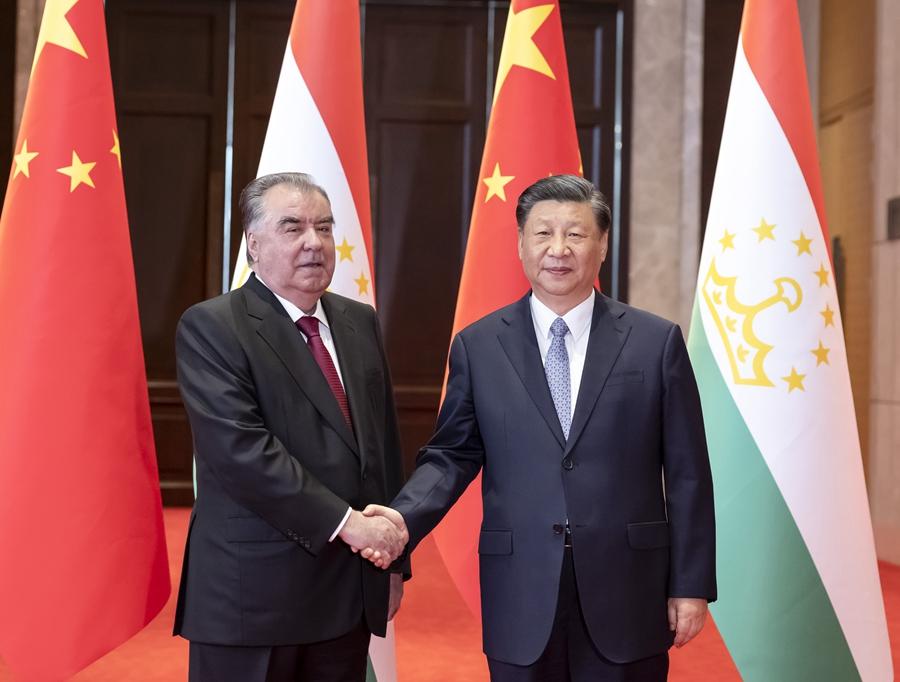新华图讯|习近平同肯尼亚总统鲁托举行会谈 sets the stage for an engaging discussion on the pivotal meeting between Xi Jinping and Kenyan President Ruto, where both leaders addressed key objectives aimed at strengthening their nations’ ties. This meeting not only highlights the historical context of China-Kenya relations but also underscores the mutual interests driving their collaboration.
In this dialogue, they explored various major topics, including trade enhancement and strategic partnerships that could significantly impact both countries and the East African region as a whole.
Overview of the Meeting

The meeting between Chinese President Xi Jinping and Kenyan President William Ruto marked a significant step in the ongoing diplomatic and economic partnership between China and Kenya. With a focus on enhancing bilateral relations, the discussions aimed to address key areas of cooperation that would benefit both nations. This encounter reflects the deepening ties that have historically characterized the relationship between China and Kenya.
The historical context of China-Kenya relations dates back several decades, with China having established a presence in Kenya as early as the 1960s. Over the years, this relationship has evolved, particularly in trade and infrastructure development, making Kenya a crucial partner in China’s Belt and Road Initiative. The leaders emphasized the importance of continuing this trajectory of collaboration, addressing various key areas during their talks.
Key Topics Addressed
The discussions encompassed several pivotal topics that aim to enhance cooperation and mutual benefit. These topics are crucial for both countries, as they seek to navigate the complexities of global economic dynamics and regional development.
- Infrastructure Development: The leaders agreed on the need to further develop transportation and energy infrastructure in Kenya, which is vital for economic growth. Projects like the Standard Gauge Railway serve as a testament to previous successful collaborations.
- Trade and Investment: Expanding trade opportunities was a major focus, with efforts to increase exports from Kenya to China, especially in agricultural products, textiles, and technology. This aligns with Kenya’s vision of improving its trade balance.
- Technology Transfer: The discussions included a commitment to enhance technology transfer, particularly in sectors like agriculture and telecommunications. This aims to bolster Kenya’s capabilities and innovation-driven growth.
- Cultural Exchange: Enhancing cultural ties through educational programs and exchanges was also highlighted, recognizing the importance of people-to-people connections in strengthening bilateral relations.
“The cooperation between China and Kenya is not just about economic gain; it’s about fostering a relationship that empowers our people and drives sustainable development.”
The meeting underscored the commitment of both leaders to foster a robust partnership that can withstand the challenges of a rapidly changing global landscape while promoting shared prosperity.
Economic Implications

The recent meeting between President Xi Jinping and Kenyan President William Ruto has significant implications for trade relations between China and Kenya. This dialogue highlights the strengthening economic ties between the two nations, which could lead to increased trade volume and investment opportunities. Both leaders expressed a commitment to enhancing cooperation, signaling a promising future for bilateral economic interactions.
The discussions covered various economic agreements and investments aimed at bolstering the economic landscape in Kenya. A notable focus was placed on infrastructure development, technology transfer, and agriculture, which are critical sectors for Kenya’s growth. The meeting has underscored a mutual interest in expanding trade, potentially leading to a more integrated economic partnership.
Trade Relations Enhancement
The meeting’s impact on trade relations manifests through several key agreements and initiatives. Notably, both countries are exploring:
- The establishment of trade preference agreements that could reduce tariffs on Kenyan exports to China.
- Investment in renewable energy projects, which could attract Chinese firms to participate in Kenya’s green energy initiatives.
- Collaborative ventures in the agricultural sector, aimed at improving food security and export quality.
These initiatives illustrate a strategic alignment of interests that may elevate Kenya’s position within regional and global supply chains.
Regional Economic Dynamics
The consequences of this meeting extend beyond bilateral benefits and could reshape East Africa’s economic landscape. The strengthening of China-Kenya relations has the potential to influence regional dynamics in several ways.
Firstly, as Kenya deepens its economic ties with China, it may become a gateway for Chinese investments into neighboring countries. This could foster an environment of shared economic growth across the region. Secondly, the increased focus on infrastructure projects, such as roads and railways, may enhance connectivity within East Africa, facilitating trade among member states of the East African Community (EAC).
Furthermore, there is the possibility of creating a ripple effect whereby other East African nations look to establish or strengthen their own trade agreements with China, driven by Kenya’s example. This could lead to a more cooperative regional economic framework, ultimately contributing to sustainable development in the area.
“The potential for enhanced trade relations between China and Kenya is not just a bilateral matter but a catalyst for broader economic integration in East Africa.”
Political and Strategic Dimensions
The meeting between Chinese President Xi Jinping and Kenyan President William Ruto holds significant political and strategic implications for both nations, particularly in the context of China’s engagement in Africa. This gathering emphasizes China’s commitment to strengthening ties with African countries, reflecting a broader strategy to enhance its influence on the continent amidst global power shifts.
The strategic importance of this meeting for China is multifaceted. Firstly, enhancing diplomatic relationships with Kenya positions China favorably in East Africa, a region rich in resources and strategic trade routes. As China seeks to expand its Belt and Road Initiative (BRI), Kenya serves as a critical hub that can facilitate trade and investment across the region. The partnership is also indicative of China’s approach to counterbalance Western influence in Africa, thereby solidifying its role as a key player on the continent.
Alignment with China’s Broader International Policies, 新华图讯|习近平同肯尼亚总统鲁托举行会谈
The discussions between Xi and Ruto align closely with China’s overarching international policies, particularly its focus on South-South cooperation and mutual development. This meeting reaffirms China’s commitment to multilateral engagement and the principles of non-interference and respect for sovereignty in its foreign policy.
Key points reflecting this alignment include:
-
Promotion of Infrastructure Development:
China’s investment in infrastructure projects in Kenya, such as the standard-gauge railway, demonstrates a long-term commitment to enhancing connectivity and economic growth in the region.
-
Support for Economic Growth:
China’s engagement includes providing financial aid and loans to support Kenya’s development goals, aligning with China’s policy of fostering economic partnerships rather than imposing conditions on aid.
-
Increasing Trade Volumes:
The meeting aims to bolster trade relations, thereby creating a sustainable economic partnership that contributes to China’s goal of expanding its market access in Africa.
The response from other East African nations to the partnership between Xi Jinping and William Ruto has been largely supportive, though cautious. Countries like Uganda and Tanzania have expressed interest in similar collaborations, recognizing the potential benefits of Chinese investment. However, there are underlying concerns regarding debt sustainability and dependency on China, prompting some nations to pursue a balanced approach in their foreign relations.
The strategic significance of this meeting underscores China’s intent to solidify its presence in Africa, leveraging partnerships that resonate with its long-term goals while navigating the complex dynamics of regional politics. The implications extend beyond Kenya, influencing how other East African nations perceive and engage with China in the evolving landscape of international relations.
Future Prospects: 新华图讯|习近平同肯尼亚总统鲁托举行会谈

The recent meeting between Chinese President Xi Jinping and Kenyan President William Ruto has opened doors for significant collaborative opportunities between the two nations. As both leaders have expressed commitment towards enhancing bilateral relations, various sectors stand to benefit from this engagement, particularly in terms of infrastructure, trade, and technology.
The agreements reached during this meeting could greatly influence Kenya’s development agenda. By leveraging China’s experience in large-scale infrastructure projects, Kenya can accelerate its Vision 2030 goals aimed at transforming the country into a newly industrializing, middle-income nation. The emphasis on sustainable development and technological advancement is particularly promising for driving economic growth and improving living standards.
Potential Areas for Collaboration
The discussions highlighted key sectors where collaboration could flourish, ensuring mutual benefits for both countries. The areas identified include:
- Infrastructure Development: Joint ventures in constructing roads, railways, and energy projects to enhance connectivity and boost trade.
- Agricultural Innovation: Sharing technology and best practices to increase food security and promote sustainable farming methods.
- Technology Transfer: Collaborations in information technology and digital services, facilitating Kenya’s entry into the global digital economy.
- Tourism Cooperation: Initiatives to promote cultural exchanges and tourism growth between China and Kenya, drawing more travelers and investments.
The implications for Kenya’s development agenda extend beyond mere economic growth. The potential projects resulting from this meeting can foster job creation, enhance skills development, and improve public services. As Kenya seeks to diversify its economy, these collaborations may provide avenues for necessary foreign direct investment, ultimately leading to a more resilient economy.
Monitoring Framework for Outcomes
Establishing a framework to monitor the outcomes of this meeting is essential for assessing the progress of Sino-Kenyan relations. Effective monitoring will ensure that both countries remain accountable to the commitments made. Key components of this framework include:
- Regular Bilateral Meetings: Scheduled discussions to review the progress of collaborative projects and adjust strategies as necessary.
- Performance Indicators: Defining specific metrics such as investment volume, project completion timelines, and job creation rates to measure success.
- Feedback Mechanisms: Creating channels for stakeholders, including local communities and businesses, to provide input on the impact of initiatives and projects.
- Public Reporting: Commitment to transparency by regularly publishing reports on the status of agreements and developments in projects.
By implementing such measures, both Kenya and China can ensure that their partnership grows stronger, fostering a relationship that not only benefits their respective economies but also enhances regional stability and prosperity in East Africa.
Experiencing a new color can be a truly profound moment that expands your perception of the world. This unique phenomenon is beautifully explored in The ‘Profound’ Experience of Seeing a New Color , where individuals recount their incredible journeys into vibrant hues that were previously unknown to them. Such experiences can be both enlightening and transformative, inspiring a deeper appreciation for the beauty around us.
In the world of basketball, thrilling matchups like Ginebra takes on san miguel showcase the intense rivalry and skills of the players. Fans eagerly await these games, filled with high energy and unforgettable moments that highlight the spirit of competition. It’s not just about the score; it’s about the passion and excitement that each team brings to the court.